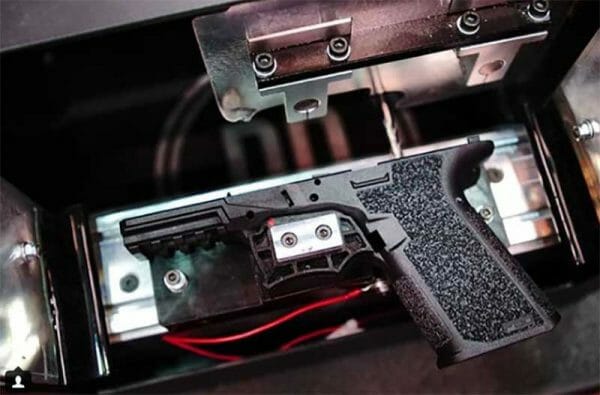
FARGO, ND -(Ammoland.com)- Seventeen state attorney generals have signed on as plaintiffs to the Gun Owners of America’s case against the Bureau of Alcohol, Tobacco, Firearms and Explosives (ATF) and its new rule surrounding the redefinition of a firearm.
The states that have joined the case are Arizona, West Virginia, Alaska, Arkansas, Idaho, Indiana, Kansas, Kentucky, Louisiana, Missouri, Montana, Nebraska, Oklahoma, South Carolina, Texas, Utah, and Wyoming. The 17 states claim that the ATF final rule violates the authority of the government agency.
After President Joe Biden became president, he demanded the ATF develop new regulations surrounding unfinished frames and pistol stabilizing devices which he called “ghost guns.” A month later, the Bureau unveiled a new rule for a public comment period. Almost 300,000 public comments were submitted to the National Registry. Most of the comments were against the new rule.
Even though most comments took a stand against the new regulation, the Bureau moved forward with crafting the rule. President Biden unveiled the rule surrounding firearms in the White House Rose Garden with soon-to-be ATF Director Steve Dettelbach and David Hogg in the audience.
Instead of clearing up confusion, the final rule muddied the water with contradictions and vagueness. The regulation also might violate the Administrative Procedures Act (APA). This ambiguity and questions about the law’s Constitutionality led GOA to sue in North Dakota in Federal District Court. The original plaintiffs that joined GOA are Bridge City Ordinance, a local gun shop, and North Dakota resident Eliezer Jimenez.
GOA’s 168-page complaint attacks the rule on every facet of the new regulations and is an accumulation of months of work. GOA has a track record of defending the gun builder community by defending companies such as JSD Supply which was served with a cease-and-desist letter to try to get the company to stop selling unfinished frames. GOA lawyers forced the ATF to resend the order allowing JSD Supply to continue selling its full line of products.
GOA and the other plaintiffs are suing for an injunction to prevent the new rules from going into effect. The new regulation is due to go into effect in less than a month. If it isn’t stopped, the privately manufactured firearms (PMF) industry will be in peril since, according to the rule, even if a person buys parts from multiple companies, those companies can be charged with “structuring,” which until this rule was a financial crime dealing with money laundering.
Two landmark Supreme Court cases have further boosted GOA’s efforts. The NYSPRA v. Bruen eliminated the two-step test in firearms cases. Before Bruen, courts could sway from the original text and history of the Second Amendment to make their decision in gun cases. Anti-gun judges used the two-step process to restrict firearms. Now the courts must only rely on the original text and history of the Second Amendment.
The second SCOTUS case that might affect GOA’s case is WV v. EPA. This groundbreaking case didn’t eliminate Chevron deference but severely curtailed it. Chevron deference means that a court may not substitute its own interpretation of a statute of a government agency. The ATF used Chevron for this rule and the upcoming pistol brace rule, which is expected by December.
If GOA is successful, the rule will be put on hold until the courts can decide its Constitutionality.
About John Crump
John is a NRA instructor and a constitutional activist. John has written about firearms, interviewed people of all walks of life, and on the Constitution. John lives in Northern Virginia with his wife and sons and can be followed on Twitter at @crumpyss, or at www.crumpy.com.

from https://ift.tt/1AS5fsW
via IFTTT

No comments:
Post a Comment